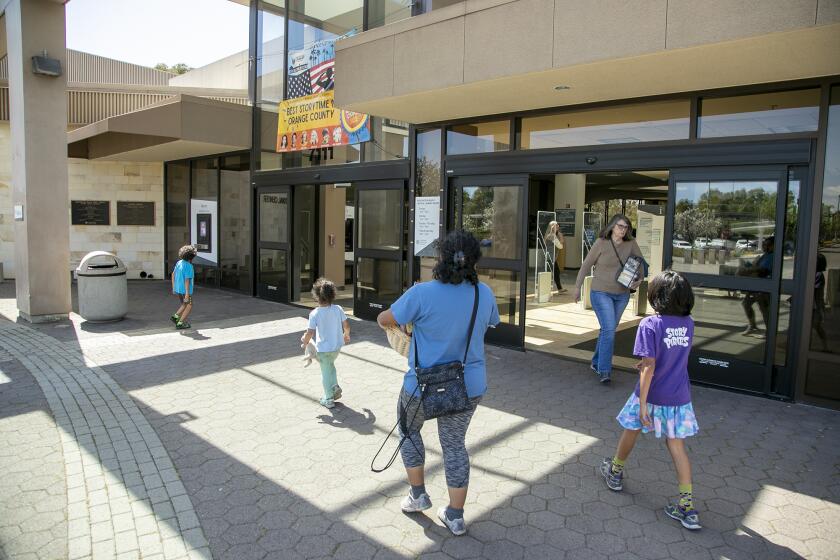Daily Pilot opinions
- Share via
I was an Anthony Bourdain fan.
Bourdain — in case you’re one of a feckless few who mistook his name for a French wine-growing region — was an American celebrity chef, author and travel documentarian without equal. A bon vivant.
I use the verb “was” with deepest regret. Bourdain was incandescent.
He was wily, witty and, well, just plain brilliant. He could turn a phrase better than most. He wasn’t gifted to the same degree as, say, Charles Krauthammer but, like the political commentator, he occasionally touched the stars.
His work was buttressed by a droll sense of humor. Bourdain and Krauthammer died days apart last month.
Krauthammer, who battled physical paralysis his entire adult life, departed a hero.
Bourdain went sadly. Tall and jaunty, Bourdain seemed the prototypical Renaissance man. He was beyond “cool” with his taciturn smile, ruggedly handsome features and silver sideburns.
The dude had it all going. Few of us in this life can make such a claim.
For the past five years he hosted the popular CNN food and travel program, “Anthony Bourdain: Parts Unknown.” I loved the show, and I loved Bourdain’s persona.
Was his character authentic? I have no idea, and frankly I don’t care. To me he represented the pinnacle of cool, hip and cultured. A wannabe and occasional traveler myself, I admired his urbane approach to life.
Scan a distant horizon. Bourdain knew what loomed beyond.
If he didn’t, he went bravely forth to find out. He trusted the fates. By watching him, I could too.
Last month, Bourdain burst my soap bubble. He was found hanging — the victim of suicide — in his hotel room in Kaysersberg, France. He was working on a “Parts Unknown” episode in nearby Strasbourg.
I’ve spent time in Strasbourg. It fits Bourdain to a T, like a crisp fall afternoon, a junky wool sweater and a glass of dry Riesling. It’s his environment.
So, why this? Back to police blotter stuff: media reports say that Bourdain was diagnosed with Parkinson’s disease three months prior to his death.
He was 61. That sounds hauntingly familiar. I was diagnosed with Parkinson’s at 61 — 12 years ago.
Parkinson’s is a progressive neurological disorder with no known cure. It causes nerve cells to die or become impaired, and patients exhibit such symptoms as tremors or shaking, slowness of movement, rigidity or stiffness, loss of facial mobility and balance difficulties. Other signs include a shuffling gait, cognitive problems and muffled speech.
Cool guys don’t go around exhibiting such behaviors. I get it. Early warning signs include insomnia, loss of sense of smell, dizziness and sweating, as well as a masked face, infrequent eye blinking and a failure to swing the arms while walking.
I had several symptoms early on. The similarities between Bourdain’s demise and that of comedian Robin Williams four years earlier are chilling. I was also a Williams fan. He committed suicide shortly after being diagnosed with Parkinson’s.
Bourdain and Williams were said to be depressed. I understand. Upon diagnosis, they no doubt felt many of the feelings I felt.
How much time do I have until who knows what? Can I continue to make it in a highly competitive world? Is life, as I’ve known it, over for me? Is life even worth living?
I had to answer those questions. Had I the chance to talk with Bourdain and Williams prior to their self-destructive acts I’d have urged the following: “Parkinson’s isn’t worth committing suicide over. Life is lived but once.”
Parkinson’s may kill me, but it won’t beat me.
Yeah, I know, nice bromide. But I’m serious.
I don’t judge Bourdain and Williams. Not at all. They were cast into a horrible situation. Their careers demanded intellectual brilliance, physical and mental stamina and lightening-quick responses. Such qualities don’t exist in the world of Parkinson’s.
“Sorry,” I told a recently diagnosed Parkinson’s patient the other day. “Nothing with Parkinson’s is quick, except maybe your fall to the floor when you lose your balance.”
Everything slows down. That’s the bane.
But I’m reminded of the Apostle Paul’s comforting counsel: “I can do all things through Christ who strengthens me.”
There’s my hope.
Jim Carnett, who lives in Costa Mesa, worked for Orange Coast College for 37 years.
All the latest on Orange County from Orange County.
Get our free TimesOC newsletter.
You may occasionally receive promotional content from the Daily Pilot.



